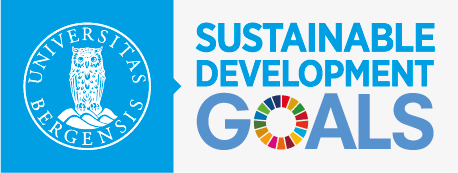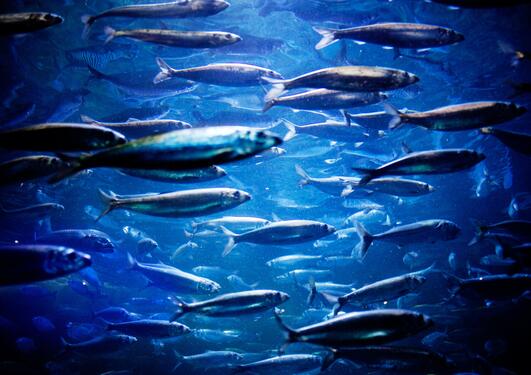A commitment to save our ocean
Climate scientist Elisabeth Holland has become the Norway-Pacific Joint Chair of Oceans and Climate Change. The position builds on a voluntary commitment at the 2017 UN Ocean Conference. #OceanAction18613

Main content
Congratulations on becoming the Norway-Pacific Joint Chair of Oceans and Climate Change. What made you apply for this job?
“One of the biggest priorities for the Pacific is to continue to have a strong voice in global affairs. To do this we need to have science backing the voices of our peoples. The position also offers an opportunity to reconstruct how we do research, starting with our Pacific Talanoa, a dialogue among all of the communities. For me, this is about putting the priorities of the Pacific at the forefront, helped by the research and excellence of the University of Bergen and Norway,” says Holland.
The ocean on the global agenda
The Norway Pacific Chair in Oceans and Climate Change is the direct result of a voluntary commitment made at the June 2017 UN Ocean Conference. How important do you believe that this conference was for putting the ocean on the global agenda?
“The conference was critical. Not only was it the first time a Pacific small island developing state had led the UN and served as president of the UN. It also refocussed Fiji from a small island developing state at the UN into a big ocean state,” says Holland, who believes this was critical for support and raising awareness on the ocean, “it allowed us to propel the discussions of the ocean into several central processes and negotiations in the UN system.”
Partnership is key for these voluntary commitments and Holland believes that the Pacific sand Norway complement each other when it comes to ocean science and knowledge.
“This partnership is important and critical to us in the post-colonial world. With the vestiges of colonialism still dominating, such as the Australian government investing 85 million Australian dollars into research ‘for the Pacific’ by Australian universities and institutions, partnerships of equals like this one between the University of Bergen and the University of the South Pacific are critical to building a research capacity to counter colonial hegemony,” Holland says.
- Read about the announcement of the commitment. #OceanAction18613
The ocean-climate nexus
We know that for the Pacific nations, the so-called ocean-climate nexus is of key concern. How can the Norway-Pacific Chair contribute to further attention to this nexus in negotiations and diplomacy for ocean and climate change?
“We can do things like research informed policy briefs for the Pacific delegations and support them in the ongoing negotiations. For instance the University of the South Pacific delegation in Paris included a University of Bergen graduate student to support the climate negotiations. This serves as a good example for how we work to support joint policy implementation,” says the Norway-Pacific chair.
Professor Holland also wants to use her new position to build bridges and encourage dialogue between polar Norway and the tropical Pacific.
“Norway has jurisdiction over a lot of ice and when that ice is no longer ice it comes to the western Pacific, which causes sea level rise,” she says, “so we need to continue the sharing of stories between the Pacific and Norway, and sharing our different points of views and perspectives.”
Save our ocean
Interdisciplinarity is at the core of the partnership behind the Oceans and Climate Change chair/professorship.
“Look back to the visit of our Pacific performers for ‘Moana – the rising of the sea’ at the Bergen International Festival. The research project ECOPAS's focus was restoring the human to climate change. Our collaboration was trying to capture the necessity of this interdisciplinarity, not dominated by voices of physical sciences, not an agenda owned by the social scientist. But the performance became part of our ongoing dialogue,” says Holland.
Saving our ocean is one of the prime tasks of the global community. How can you contribute to this in your work as Norway-Pacific Chair of Oceans and Climate Change?
“We have to engage in the discussion with the Pacific leaders about what their priorities are. To make sure that we are responding to the evolving needs of the Pacific in all these international discussions. The Pacific does not have the well-funded research capacity that Norway has,” says Elisabeth Holland, “how do we use the capacity that Norway has in a model of true partnership to support Pacific voices and ambitions for a sustainable, viable and secure Pacific?”

